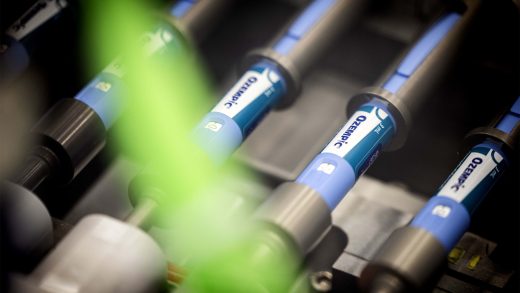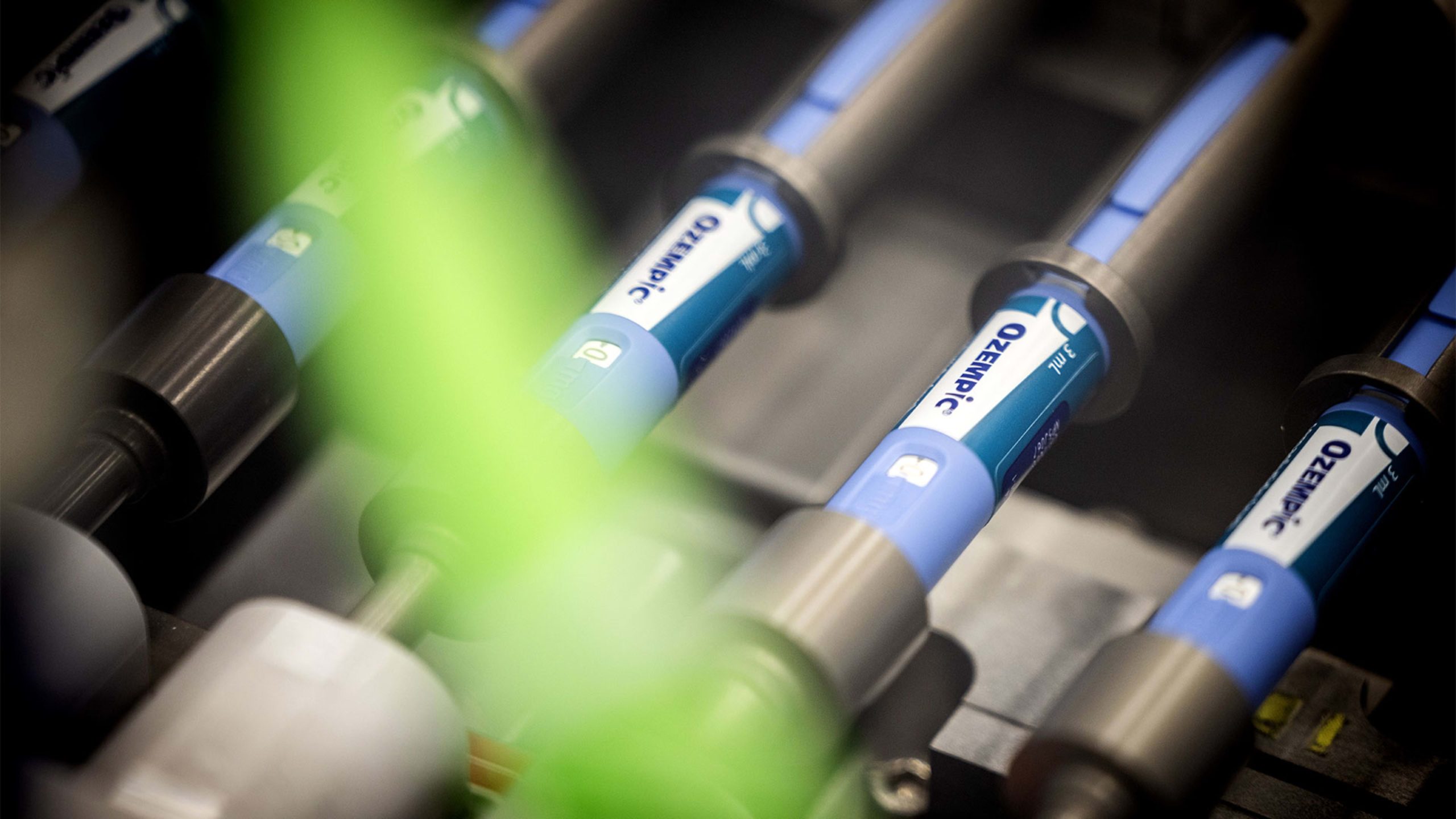Your $1,000-per-month Ozempic costs $5 to make, says study
Your $1,000-per-month Ozempic costs $5 to make, says study
Researchers from Yale University, King’s College Hospital in London, and Doctors Without Borders have estimated a production cost between 89 cents and $4.73 for a one-month supply, and that’s including ‘a profit margin with an allowance for tax.’
BY Clint Rainey
Diabetes-turned-obesity drug Ozempic could be sold for $5 a pen and still make Novo Nordisk a profit, says a new study that simply did a cost analysis for making the popular medicine.
Alongside Wegovy, its more-potent sister medication (also made by Novo), Ozempic has become a coveted weight-loss medication touted by everybody from Elon Musk to Tracy Morgan, helping transform Novo Nordisk into a pharmaceutical behemoth in the process. (It recently overtook LVMH—the luxury goods brand owned by the world’s richest person, Bernard Arnault—as Europe’s most valuable publicly listed company.) The pair of drugs are enjoying such a prescription heyday that their sales accounted for a majority of the economic growth in Denmark, Novo’s home base, for 2022.
But Wednesday’s study, which was published in the journal JAMA Network Open by a team of researchers from Yale University, King’s College Hospital in London, and Doctors Without Borders, estimated that the cost to produce a one-month supply of Ozempic runs between 89 cents and $4.73. That estimate includes “a profit margin with an allowance for tax,” the authors wrote. One Ozempic pen, which lasts most users a month, carries a current U.S. list price of $968.52.
Their math isn’t really being debated: They simply added together the cost of the ingredients, the packaging, then the logistics to distribute the drug. Their conclusion was that Ozempic could retail for as little as 89 cents a month, yet still clear a profit. In fact, a one-month supply of the active ingredient—semaglutide, a so-called glucagon-like peptide-1 receptor agonist—likely costs Novo around 29 cents. The researchers estimated that other chemical ingredients add another 15 cents worth of supply costs, and the other production for the pen are another 20 cents.
Novo hasn’t confirmed its math yet to the media but has declined in the past to release production costs for Ozempic and Wegovy, which costs even more: about $1,300 a month. In a statement, the company argued it’s working to ensure everyone can access these drugs, noting that 75% of gross earnings go back into rebates and other discounts to help patients afford products.
There are also reports, such as this one last year by the American Enterprise Institute (AEI), that question if the high prices are entirely what they seem, at least regarding the amount Novo can take to the bank. Retail list prices, or what you’d pay out of pocket to buy the drug yourself, often exceed drugs’ “net prices”—the sort of negotiated compromise that drugmakers charge insurers and pharmacy benefit managers, which isn’t publicly revealed. The AEI report said the net price for a monthly dose of Ozempic looks to be around $300, and for Wegovy it’s around $700. Both are about $650 below the list price.
It has been a bonanza, regardless, for Novo, which apparently didn’t have Ozempic’s breakthrough success on its bingo card, either. “Had we predicted this, we would have prepared differently,” CEO Lars Fruergaard Jørgensen told Fast Company in December. Both drugs have seen shortages in the U.S., and it’s estimated that nearly 2% of American adults who saw a doctor in the past year were, incredibly, prescribed one of these two medications. Their popularity translated into more than $10 billion in sales in the third quarter of 2023, accounting for more than half of Novo’s revenue.
It’s hardly unusual for pharmaceutical companies to slap eyebrow-raising prices onto drugs, often citing the billions required to bring them to market when they do. But a list price that is 200 to 1,000 times higher than the production cost is less common. When a large chunk of America seemed outraged at “pharma bro” Martin Shkreli for jacking up the list price of antiparasitic medication Daraprim, that was for a 40-fold increase, from $13.50 to $750 per pill.
(10)



